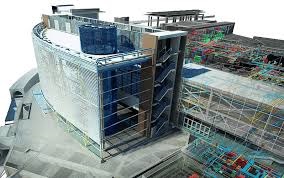Riyadh is undergoing one of the most transformative phases in its history, especially in the realm of transportation infrastructure. With billions invested in mega projects like the Riyadh Metro, King Abdulaziz Public Transport System, and smart mobility initiatives, the role of the Engineering Consultant has never been more critical. These consultants are the strategic minds and technical enablers turning ambitious blueprints into functioning, future-ready transport systems.
How Engineering Consultants Drive Riyadh’s Transit Development
Transportation projects in Riyadh demand complex planning, cutting-edge engineering, and seamless integration across multiple systems. An Engineering Consultant brings together urban planning, civil engineering, geotechnical expertise, mechanical systems, and environmental impact mitigation under one umbrella.
Their core responsibilities in Riyadh’s transport sector include:
- Designing metro and rail systems with safety and efficiency at scale
- Conducting traffic modeling and simulations for smart mobility
- Planning sustainable public transit hubs and intermodal connections
- Integrating green technologies like solar-powered stations and electric bus systems
- Overseeing project timelines, quality benchmarks, and regulatory compliance
Their holistic involvement ensures that each transportation project meets not only Riyadh’s current needs but is also scalable for future urban expansion.
Key Transportation Projects in Riyadh Involving Engineering Consultants
Riyadh Metro (King Abdulaziz Project for Public Transport)
This $22.5 billion megaproject spans 6 lines, over 170 kilometers, and more than 80 stations. International and local Engineering Consultant firms, including AECOM, Dar Al Riyadh, and FAST Consortium members, have handled everything from tunneling to smart signaling systems. Their involvement guarantees world-class safety, speed, and energy efficiency standards.
Riyadh Bus Rapid Transit (BRT)
Integrated with the metro, the BRT network covers strategic city zones, offering fast and affordable access. Engineering Consultants have crafted dedicated lanes, designed bus stops for climate suitability, and implemented intelligent transport systems (ITS) for schedule monitoring and passenger flow control.
King Khalid International Airport Metro Link
This proposed metro connection will link the airport directly to the city’s heart. Engineering Consultant teams are currently engaged in feasibility studies, environmental impact assessments, and geotechnical surveys to optimize the route and ensure minimal disruption.
Smart Mobility and Pedestrianization Projects
With Vision 2030 pushing for reduced vehicle dependency, consultants are actively planning cycling tracks, electric scooter zones, and pedestrian-only urban spaces. They integrate GIS mapping, urban heat analysis, and landscape engineering to enhance walkability and reduce urban congestion.
The Engineering Consultant’s Role in Sustainable Transportation
Sustainability is at the core of Riyadh’s new transport model. Engineering Consultants focus on:
- Energy-efficient lighting, HVAC, and solar applications for stations
- Rainwater harvesting and greywater reuse at transit facilities
- Noise and vibration reduction technologies
- Low-emission vehicle planning, including electric buses and EV infrastructure
These green features align with international benchmarks such as LEED, Envision, and local Saudi Green Building Code guidelines.
Technology Integration and Smart Transit Systems
Modern transit infrastructure is data-driven. Engineering Consultants leverage:
- BIM (Building Information Modeling) for lifecycle management
- IoT sensors to monitor structural health and passenger safety
- AI-powered traffic management for smoother flow and reduced wait times
- Autonomous vehicle feasibility studies for future adoption
By embracing digital tools, consultants are helping Riyadh leapfrog into the era of smart, responsive transport systems.
Challenges Managed by Engineering Consultants
The complexity of transportation projects in Riyadh comes with unique challenges:
- High temperatures impacting construction materials and timelines
- Navigating existing underground utilities and fragile soil zones
- Balancing rapid deployment with long-term urban planning
- Coordinating with multiple international contractors and local authorities
An Engineering Consultant anticipates, mitigates, and solves these issues through proactive planning and risk assessment models.
Impact on Riyadh’s Economy and Mobility
Efficient transport transforms cities—and that’s precisely what Riyadh is experiencing. With metro, BRT, and smart mobility options becoming operational:
- Commuters save up to 40% travel time daily
- Real estate near stations has seen value appreciation
- Job creation in engineering, maintenance, and tech support has grown
- Pollution and traffic congestion are on a decline
And all of this is largely enabled by the tireless work of Engineering Consultant firms who ensure every detail—from station air flow to escalator reliability—is perfected.
Conclusion
The future of Riyadh’s mobility depends on smart, sustainable, and integrated transportation—and at the center of it all stands the Engineering Consultant. Their knowledge transforms plans into progress, challenges into innovation, and blueprints into operational excellence. As Riyadh surges forward, its transportation network will continue to be shaped by the vision and expertise of these essential professionals.
FAQs
- What role does an Engineering Consultant play in Riyadh Metro?
They design, supervise, and manage engineering aspects like station structure, tunnels, ventilation, and signaling systems to ensure global transit standards. - Are Engineering Consultants involved in both metro and bus projects?
Yes, their services extend across all modes of transit—from metro, buses, and roads to pedestrian walkways and airport links. - Do Engineering Consultants ensure compliance with Saudi regulations?
Absolutely. They align every project with Riyadh Municipality, Saudi Building Code, and sustainability requirements. - Can an Engineering Consultant help reduce environmental impact?
Yes. Their designs incorporate eco-friendly technologies, reduce carbon emissions, and include green spaces to enhance livability. - How do I choose the right Engineering Consultant for a transportation project?
Look for firms with a strong local presence, international project experience, regulatory knowledge, and digital engineering capabilities.
For more information: AMC Engineer BIM Services

